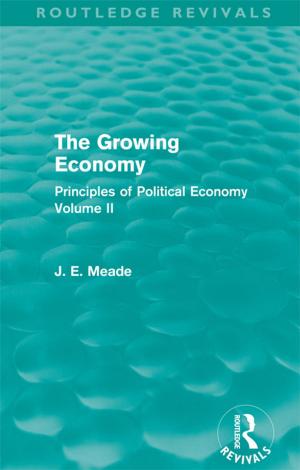Climate Change Mitigation and Agriculture
Nonfiction, Science & Nature, Technology, Agriculture & Animal Husbandry| Author: | ISBN: | 9781136503443 | |
| Publisher: | Taylor and Francis | Publication: | March 1, 2013 |
| Imprint: | Routledge | Language: | English |
| Author: | |
| ISBN: | 9781136503443 |
| Publisher: | Taylor and Francis |
| Publication: | March 1, 2013 |
| Imprint: | Routledge |
| Language: | English |
This book reviews the state of agricultural climate change mitigation globally, with a focus on identifying the feasibility, opportunities and challenges for achieving mitigation among smallholder farmers. The purpose is ultimately to accelerate efforts towards mitigating land-based climate change. While much attention has been focused on forestry for its reputed cost-effectiveness, the agricultural sector contributes about ten to twelve per cent of emissions and has a large technical and economic potential for reducing greenhouse gases. The book does not dwell on the science of emissions reduction, as this is well covered elsewhere; rather, it focuses on the design and practical implementation of mitigation activities through changing farming systems.
Climate Change Mitigation and Agriculture includes chapters about experiences in developed countries, such as Canada and Australia, where these efforts also have lessons for mitigation options for smallholders in poorer nations, as well as industrialising countries such as Brazil and China. A wide range of agroecological zones and of aspects or types of farming, including livestock, crops, fish farming, fertilizer use and agroforestry, as well as economics and finance, is included. The volume presents a synthesis of current knowledge and research activities on this emerging subject. Together the chapters capture an exciting period in the development of land-based climate change mitigation as attention is increasingly focused on agriculture's role in contributing to climate change.
This book reviews the state of agricultural climate change mitigation globally, with a focus on identifying the feasibility, opportunities and challenges for achieving mitigation among smallholder farmers. The purpose is ultimately to accelerate efforts towards mitigating land-based climate change. While much attention has been focused on forestry for its reputed cost-effectiveness, the agricultural sector contributes about ten to twelve per cent of emissions and has a large technical and economic potential for reducing greenhouse gases. The book does not dwell on the science of emissions reduction, as this is well covered elsewhere; rather, it focuses on the design and practical implementation of mitigation activities through changing farming systems.
Climate Change Mitigation and Agriculture includes chapters about experiences in developed countries, such as Canada and Australia, where these efforts also have lessons for mitigation options for smallholders in poorer nations, as well as industrialising countries such as Brazil and China. A wide range of agroecological zones and of aspects or types of farming, including livestock, crops, fish farming, fertilizer use and agroforestry, as well as economics and finance, is included. The volume presents a synthesis of current knowledge and research activities on this emerging subject. Together the chapters capture an exciting period in the development of land-based climate change mitigation as attention is increasingly focused on agriculture's role in contributing to climate change.















